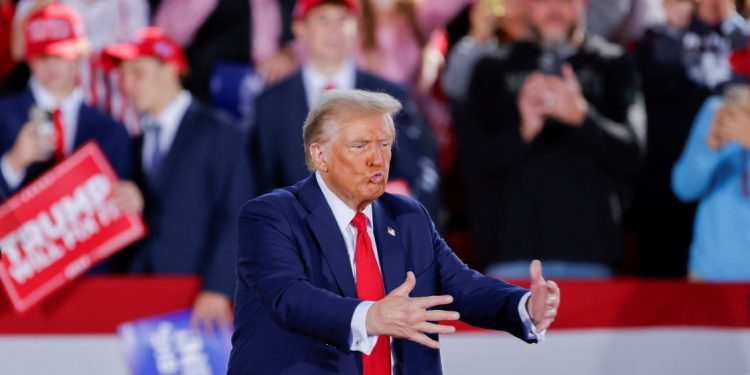- Donald Trump’s announcement of victory in the 2024 U.S. presidential election has sparked congratulatory messages from global leaders eager to engage with his second term.
- British Prime Minister Rishi Sunak and Canadian Prime Minister Justin Trudeau were among the first to extend congratulations, emphasizing strong U.S.-UK and U.S.-Canada relations.
- Global leaders, including those from Israel, Germany, Japan, and Australia, expressed hope for continued cooperation on key international issues like security, trade, and climate change.
World leaders quickly reacted on Wednesday after Republican Donald Trump declared victory in the 2024 U.S. presidential election, defeating Democratic Vice President Kamala Harris. Trump’s victory speech outlined plans to focus on American prosperity, security, and international partnerships, as he prepares for a return to the White House after his first term ended in 2021.
British Prime Minister Rishi Sunak was among the first to extend his congratulations, highlighting the enduring relationship between the U.S. and the UK. Sunak expressed confidence in continuing close cooperation on key areas such as trade, defense, and climate change under the new Trump administration.
Canadian Prime Minister Justin Trudeau also congratulated Trump, emphasizing the long-standing and friendly ties between the two countries. He said he looked forward to working together to address shared challenges like economic growth and regional security.
Israeli Prime Minister Benjamin Netanyahu personally called Trump to congratulate him, acknowledging the former president’s strong support for Israel during his first term. Netanyahu expressed hopes for further collaboration on regional peace and security.
Leaders from other countries, including German Chancellor Olaf Scholz, Japanese Prime Minister Fumio Kishida, and Australian Prime Minister Anthony Albanese, also sent their congratulations. Scholz focused on the importance of unity among Western allies in addressing global issues such as climate change and economic stability, while Kishida emphasized the importance of U.S.-Japan cooperation in the Asia-Pacific region.
Trump’s victory signals the potential for changes in U.S. domestic and foreign policies. His previous presidency was marked by policies that often diverged from traditional U.S. approaches, and his second term is expected to continue these strategies, though specifics are yet to be revealed.
In the United States, Trump’s win has sparked celebrations among his supporters, who are hopeful for a renewed focus on his policies of economic nationalism and strengthened borders. Meanwhile, analysts are keen to see how the Biden administration’s policies might evolve under Trump’s leadership.
As Trump returns to power, global leaders will be closely watching how his administration navigates critical international issues and engages with allies moving forward.






















